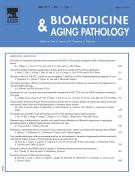Significant increase in salivary substance P level after a single oral dose of Japanese herbal medicine Dai-kenchu-to in humans - 08/10/12
 , Hiroki Itoh, Ryota Yamamura, Ryosuke Tatsuta, Yuhki Sato, Masaharu Takeyama
, Hiroki Itoh, Ryota Yamamura, Ryosuke Tatsuta, Yuhki Sato, Masaharu TakeyamaAbstract |
Dai-kenchu-to (DKCT), a Japanese herbal (kampo) medicine, has been used for the treatment of abdominal obstructions including bowel obstructions and a feeling of coldness in the abdomen. The effect of DKCT on gastrointestinal motor activity has been reported to be closely related to changes in some neuropeptides in human plasma. In this study, we examined the effects of DKCT on salivary levels of substance P (SP), calcitonin gene-related peptide (CGRP), and vasoactive intestinal polypeptide (VIP)-like immunoreactive substances (IS) in humans. An open-labeled crossover study was conducted on five healthy volunteers. Saliva volume was measured and saliva samples were collected before and 20 to 240min after a single oral dose of DKCT or placebo. Salivary levels of SP-, CGRP- and VIP-IS were measured using highly sensitive enzyme immunoassays. The salivary volume increased approximately 1.2- to 1.5-fold at 20 to 120min after DKCT dosing compared with placebo, although the differences were not statistically significant. A single oral dose of DKCT resulted in a significant increase in salivary SP-IS level, and a significant correlation was observed between salivary SP-IS level and salivary volume. DKCT administration did not alter the salivary levels of CGRP- and VIP-IS compared with placebo. These findings suggest a close association of SP with the enhancement of salivary secretion by DKCT. DKCT may be especially useful in patients with xerostomia as an accompanying condition.
Le texte complet de cet article est disponible en PDF.Keywords : Dai-kenchu-to, Substance P, SP, Saliva, Neuropeptide
Plan
Vol 2 - N° 3
P. 81-84 - juillet 2012 Retour au numéroBienvenue sur EM-consulte, la référence des professionnels de santé.
L’accès au texte intégral de cet article nécessite un abonnement.
Déjà abonné à cette revue ?

